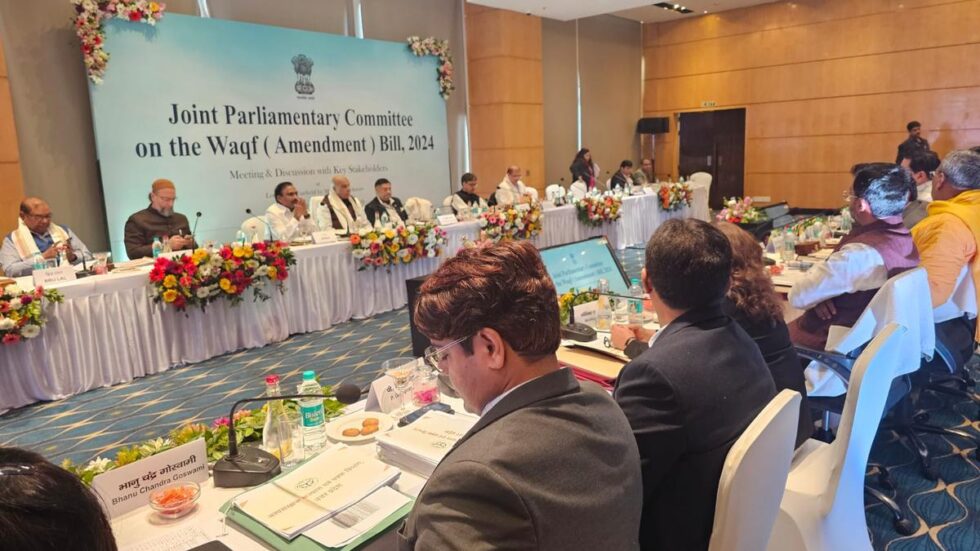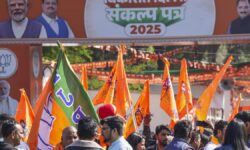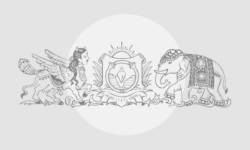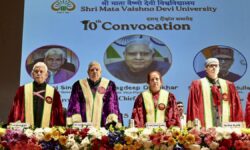
The joint parliamentary committee (JPC) formed vis-a-vis the Waqf (Amendment) Bill held an important meeting in Lucknow on Tuesday (January 21, 2025).
The meeting was attended by officials of the Shia Waqf Board and representatives of various Muslim organisations and the Uttar Pradesh government.
State Minority Welfare Minister Om Prakash Rajbhar, who attended the meeting, told PTI, “Various stakeholders related to Waqf properties presented their views before the JPC members. The government’s intention is very clear. It wants to give the benefits of Waqf properties to poor Muslims as well.”
Without naming anyone, Mr. Rajbhar said, “Those who have illegally occupied Waqf land are the ones opposing the Waqf (Amendment) Bill.”
Uttar Pradesh Shia Waqf Board Chairman Ali Zaidi told PTI that he put forth his point of view at the meeting.
Mr. Zaidi said he has especially highlighted the uncertainty about the future of “Waqf in-use” properties before the JPC.
He said the draft of the Waqf (Amendment) Bill talks about excluding “Waqf in-use” properties from the category of Waqf. In such a situation, what will happen to those properties and who will manage them? he asked.
Mr. Zaidi said he informed the JPC that all dargahs, karbalas, imambaras, khanqahs and graveyards are such properties that are in use but not recorded in writing as Waqf. However, they come under Waqf in terms of use and their management is done through the Waqf Act.
The Shia Waqf Board chairman said there are many other legal aspects that he has presented before the JPC.
He said the meeting was attended by JPC Chairman Jagdambika Pal as well as MPs A. Raja, Imran Masood, Asaduddin Owaisi, Muhibullah Nadvi and various representatives of the Uttar Pradesh government.
The JPC was constituted after the Waqf (Amendment) Bill, 2024 could not be passed in Parliament. In recent months, the panel has held meetings in various states and sought to know about the objections to the Bill by holding discussions with various parties related to Waqf.






